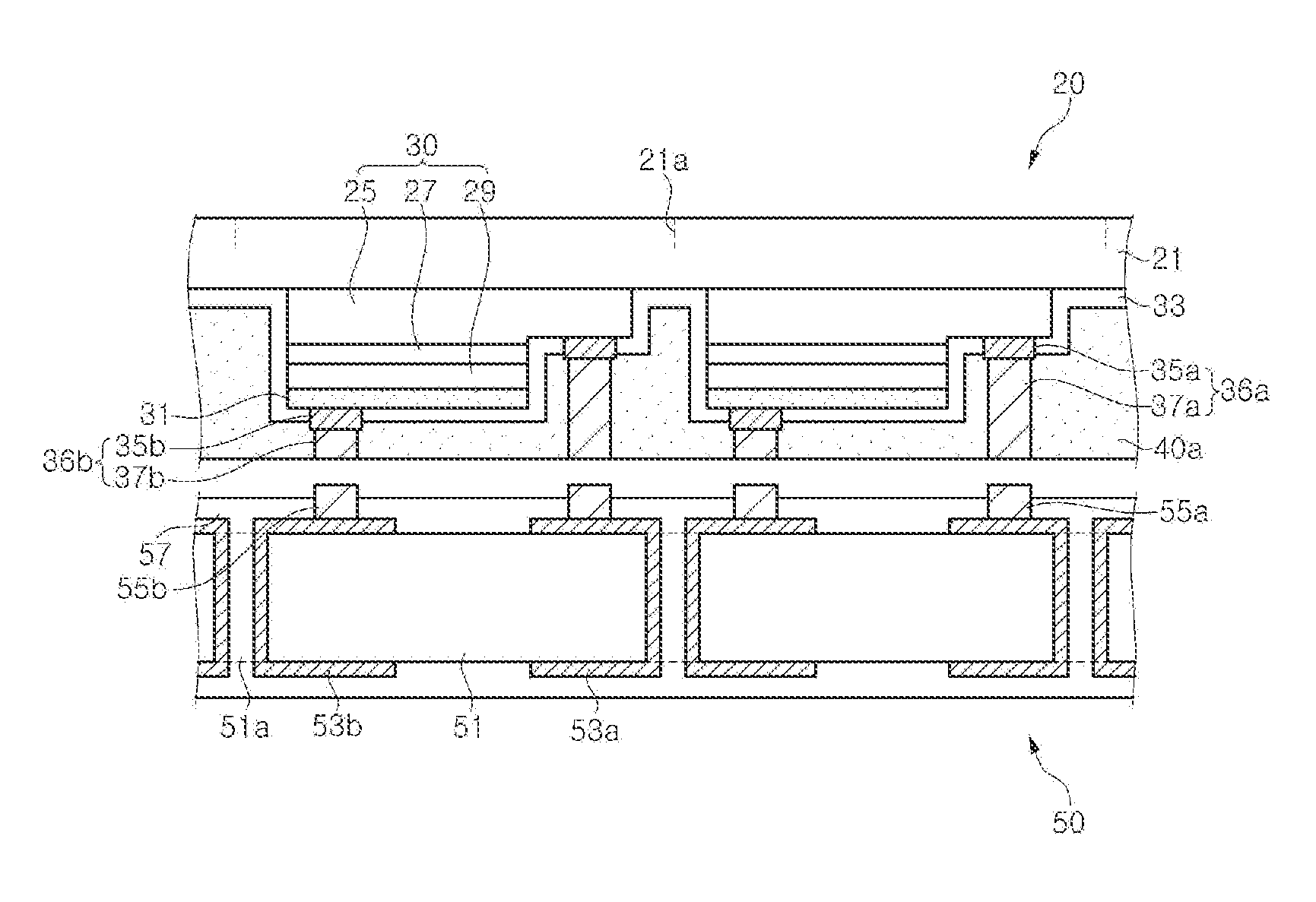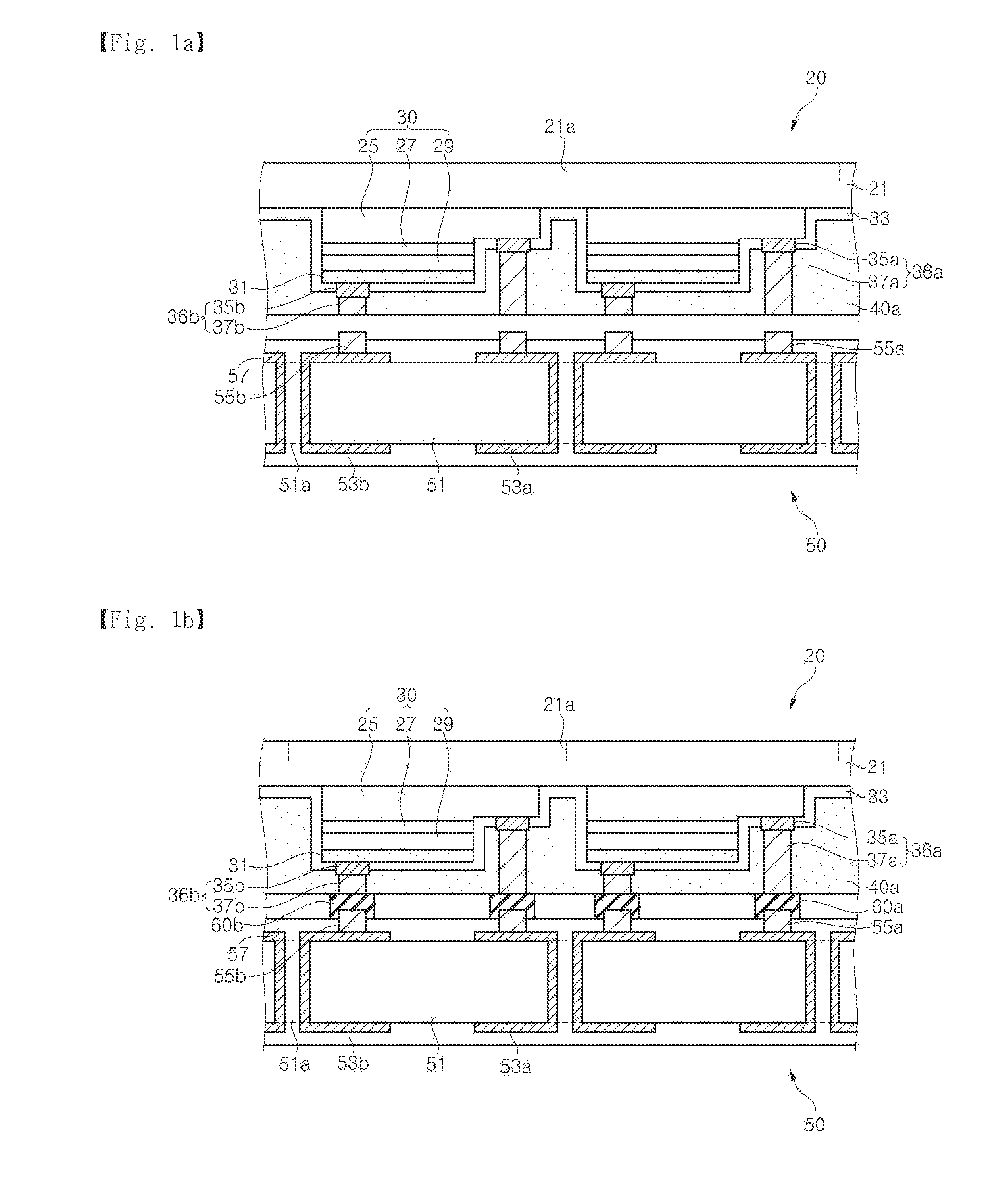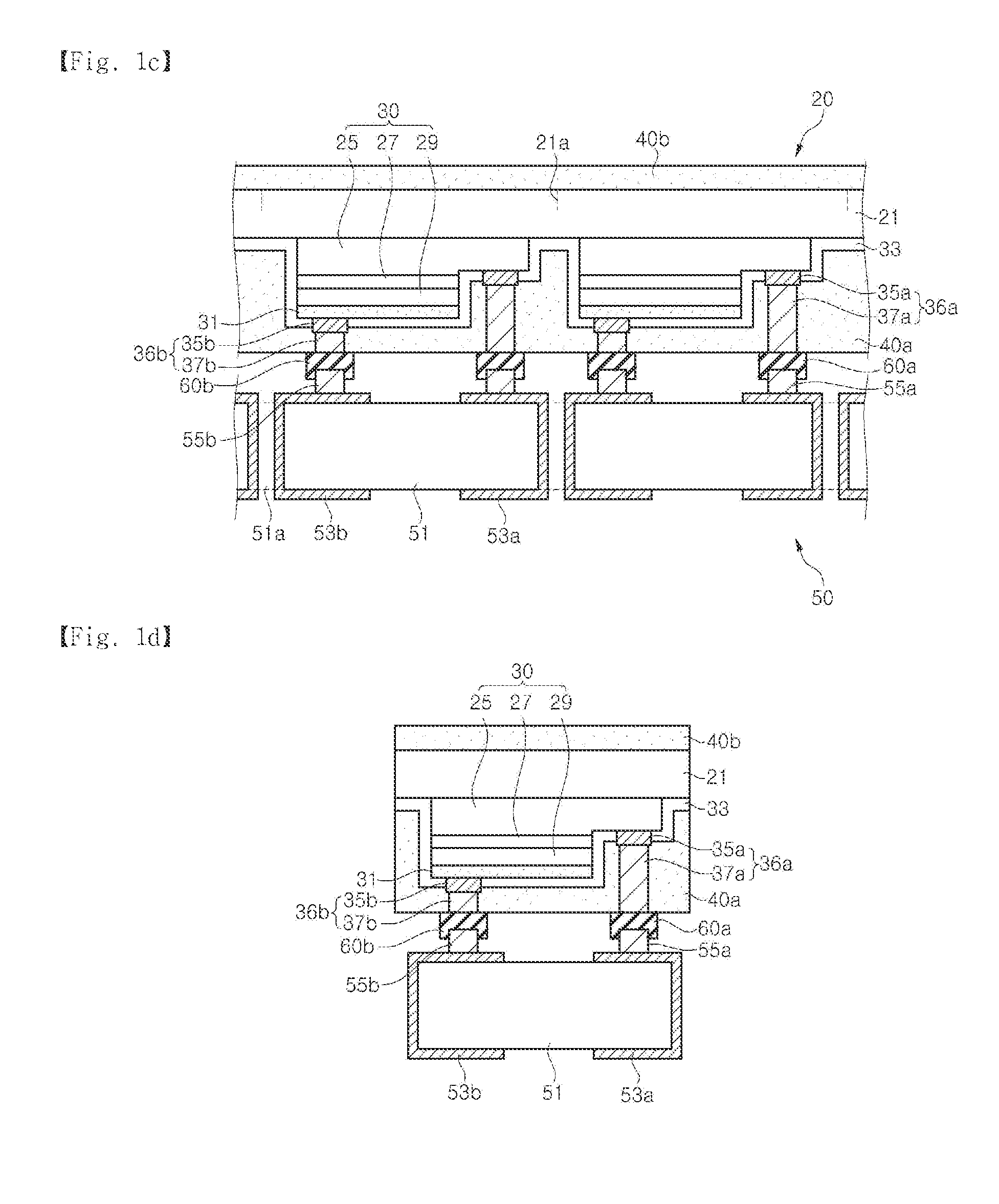Method of fabricating semiconductor device using gang bonding and semiconductor device fabricated by the same
a technology of gang bonding and semiconductor devices, which is applied in the direction of semiconductor devices, semiconductor/solid-state device details, electrical devices, etc., can solve the problems of difficult uniform formation of resin, complicated process of fabricating led packages, and long time for fabricating led packages, so as to achieve rapid fabrication of led packages and avoid failure of led packages
- Summary
- Abstract
- Description
- Claims
- Application Information
AI Technical Summary
Benefits of technology
Problems solved by technology
Method used
Image
Examples
first embodiment
[0057]FIGS. 1a to 1d are sectional views illustrating a method of fabricating an LED package according to the present invention.
[0058]Referring to FIG. 1d, there is provided a substrate assembly 20 in which a plurality of semiconductor stack structures 30 are arrayed on a substrate 21, and there is a packaging member 50 having lead electrodes 53a and 53b.
[0059](Preparation of Substrate Assembly 20)
[0060]The substrate assembly 20 may comprise a substrate 21, semiconductor stack structures 30, a first electrode 36a, a second electrode 36b and a first wavelength converter 40a. Each of the semiconductor stack structures may comprise a first conductive semiconductor layer 25, an active layer 27 and a second conductive semiconductor layer 29. The first electrode 36a may comprise a first electrode pad 35a and a first additional electrode 37a, and the second electrode 36b may comprise a second electrode pad 35b and a second additional electrode 37b.
[0061]The substrate assembly 20 may comp...
second embodiment
[0095]FIGS. 3a to 3d are sectional views illustrating a method of fabricating an LED package according to the present invention.
[0096]Referring to FIG. 3a, a substrate assembly 20a according to this embodiment is different from the substrate assembly 20 of Fig. la in that the first wavelength converter 40a is not formed. An anti-plating layer 67 may be formed in place of the first wavelength converter 40a. Like the anti-plating layer 57, the anti-plating layer 67 may be formed of photoresist, polyimide or the like.
[0097]Referring to FIG. 3b, as described with reference to FIG. 1b, a first plating layer 60a is formed between the first electrode 36a and the first spacer electrode 55a, and a second plating layer 60a is formed between the second electrode 36b and the second spacer electrode 55b.
[0098]Referring to FIG. 3c, after the plating layers 60a and 60b are formed, the anti-plating layers 57 and 67 are removed using acetone or the like. Then, a first wavelength converter 70a is fo...
third embodiment
[0101]FIGS. 4a and 4b are sectional views illustrating a method of fabricating an LED package according to the present invention.
[0102]Referring to FIG. 4a, a substrate assembly 20b according to this embodiment is almost identical to the substrate assembly 20 described with reference to FIG. 1a, but is different in that the first conductive semiconductor layer 25 is not separated for each of the semiconductor stack structures 30 but continuous. That is, when the epitaxial layers formed on the growth substrate 21 are patterned, some regions of the second conductive semiconductor layer 29 and the active layer 27 are removed, and the first conductive semiconductor layer 25 is partially patterned.
[0103]Subsequent processes are performed identically to those described with reference to FIGS. 1a to 1d. Accordingly, when the growth substrate 21 is divided, the first conductive semiconductor layer 25 is divided together with the growth substrate, and thus side surfaces of the growth substra...
PUM
 Login to View More
Login to View More Abstract
Description
Claims
Application Information
 Login to View More
Login to View More - R&D
- Intellectual Property
- Life Sciences
- Materials
- Tech Scout
- Unparalleled Data Quality
- Higher Quality Content
- 60% Fewer Hallucinations
Browse by: Latest US Patents, China's latest patents, Technical Efficacy Thesaurus, Application Domain, Technology Topic, Popular Technical Reports.
© 2025 PatSnap. All rights reserved.Legal|Privacy policy|Modern Slavery Act Transparency Statement|Sitemap|About US| Contact US: help@patsnap.com



